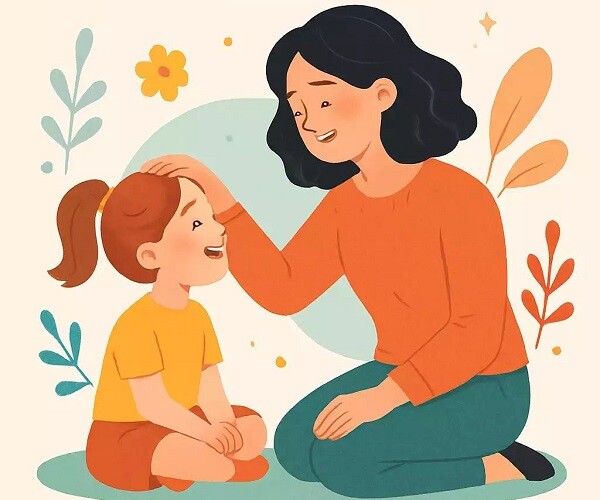There’s a saying that goes, “A child’s perception is shaped by the language mirror of adults.” As such, a parent’s words can deeply impact how a child views themselves and the world around them. Encouraging and uplifting words can foster positive thinking, while criticism and doubt can make a child feel insecure and lacking in confidence.
Hence, choosing the right words and tone when communicating with children is vital. The following are some phrases that can lay the foundation for a child’s psychological and emotional development, helping them become more confident and resilient in the future.


“Your handwriting is neater, and your grip on the pencil is steadier.”
A little praise goes a long way in motivating a child to improve.
“You finished that Lego set 30 minutes faster than yesterday. I can see your hard work paying off!”
“Your handwriting is neater, and your grip on the pencil is steadier.”
When children focus on the details and witness their progress, they understand the value of effort and perseverance. Such words of encouragement serve as a driving force, urging them to keep striving and developing.
Children will grow up to be more resilient, having learned to find success in the little things. They will also gain confidence in their abilities and more easily overcome challenges.
Furthermore, when children realize that their efforts are recognized and appreciated, they develop a positive mindset toward learning and growth.
This lays a solid foundation for a bright future, empowering them to confidently pursue their passions and dreams. Praising children builds their self-confidence and instills perseverance.


“I don’t blame you, but if you make a mistake, own up to it.”
Many children hesitate to admit their mistakes and tend to blame others. Parents need to help children understand that making mistakes is not a bad thing; what matters is taking responsibility for their actions.
Rudolf Dreikurs wrote, “Children develop a sense of responsibility when they view mistakes as opportunities for learning rather than reasons for condemnation.” When children realize that mistakes are a natural part of the learning process, they mature in their decision-making and problem-solving abilities.
This confidence is reflected in their willingness to take responsibility for their actions, indicating that they are learning from their mistakes.


“Go ahead and give it a try. If something breaks, we’ll fix it together.”
In reality, giving children opportunities to try and fail is more important than directly teaching them how to make mistakes.
A six-year-old girl insisted on making fried eggs with tomatoes by herself. Her mother didn’t object but told her, “Go ahead and give it a try. If something breaks, I’m here. But first, listen to my instructions. Break the eggs, stir them, add a little salt, and then fry them…”
Although the eggs and tomatoes were burnt, the little girl was still happy and proud to offer her mother a taste.
In fact, a child’s brain needs to establish neural connections by “doing it themselves” rather than “being taught.” So, let children try things a few times and learn through practice; this method is more effective.
When children dare to take on challenges and hone their problem-solving skills, they are more likely to succeed in the future.


“How are you feeling? Tell me about it.”
Daniel Goleman wrote that empathy is not innate but nurtured through the reflection of emotions.
Children learn to understand others’ emotions through the language that parents use daily.
When we ask, “How are you feeling? Tell me about it,” we encourage children to express their emotions and feel cared for. Such conversations help children realize that emotions are an essential part of social relationships, fostering empathy and effective communication skills.
Phrases like, “How are you feeling? Why do you feel that way? Is there anything making you happy or sad? How can I help?” create a habit of expressing emotions, building a safe environment, and making it comfortable to share thoughts and feelings.
Children raised in such an environment tend to be good listeners and understand others. This lays the foundation for a bright future, where empathy and good communication skills will open doors to numerous opportunities in life.
Empathy is not just an essential skill in relationships but also a key to success in careers and social interactions.































